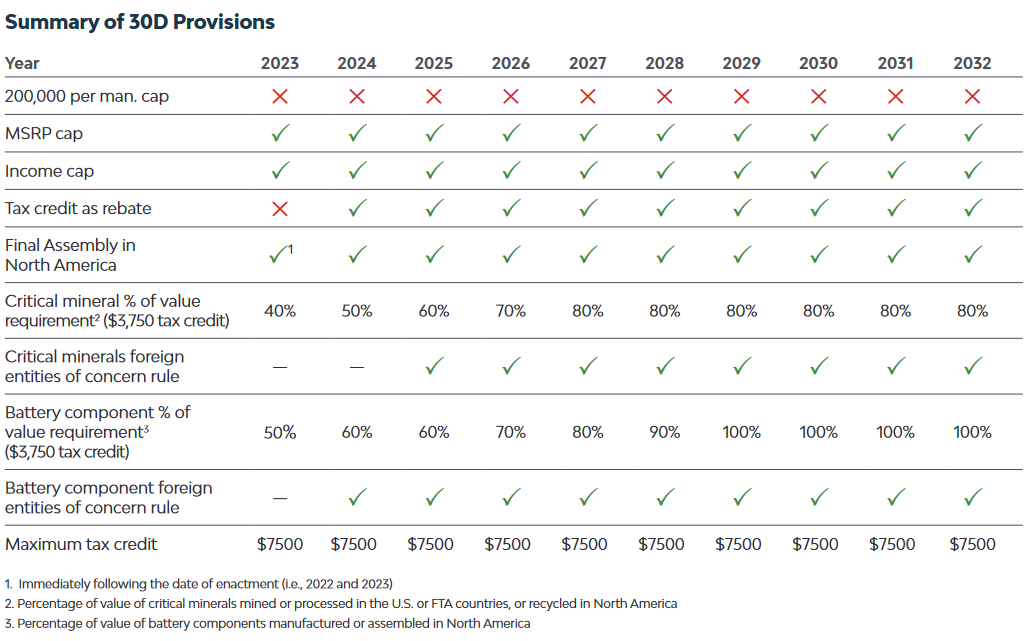With each passing year, tax season becomes an inevitable chore that we all have to face. However, there are few things that can make the process a little less daunting, and one of them is tax credits. Tax credits can significantly reduce your overall tax liability and put more money back in your pocket. In this article, we will explore the world of tax credits, focusing specifically on the ones that will be available in 2024.
Child Tax Credit
One of the most well-known and widely utilized tax credits is the Child Tax Credit. Designed to provide financial assistance to families with children, this credit can reduce your tax liability by up to $2,000 per eligible child. However, starting in 2024, the Child Tax Credit is set to undergo some changes.
Expanded Child Tax Credit
Under the expanded Child Tax Credit, eligible families will receive an increased benefit. The credit for each qualifying child will increase to $3,000 for children aged 6 to 17 and $3,600 for children under the age of 6. Additionally, the age limit for eligible children will be raised to 18, providing more support for families with older children.
Advance Payments
Another significant change coming in 2024 is the introduction of advance payments for the Child Tax Credit. Instead of waiting until you file your tax return to claim the credit, eligible families will receive monthly payments throughout the year. This aims to provide families with more immediate financial support and help alleviate the strain of child-rearing expenses.
Education Tax Credits
The cost of education continues to rise, making it increasingly important to take advantage of any available tax credits. In 2024, there are two main education tax credits that individuals and families can utilize.
American Opportunity Credit
The American Opportunity Credit is a tax credit specifically for higher education expenses. Eligible individuals can claim up to $2,500 per student for qualified education expenses, such as tuition, fees, and course materials. This credit can be claimed for the first four years of post-secondary education.
Lifetime Learning Credit
The Lifetime Learning Credit is available to individuals pursuing education beyond the first four years. This credit provides a maximum benefit of $2,000 per tax return, regardless of the number of students in the family. Unlike the American Opportunity Credit, there is no limit on the number of years this credit can be claimed.
Solar Energy Tax Credits
As the world becomes more conscious of the environmental impact of energy consumption, the government continues to incentivize the use of renewable energy sources. Solar energy tax credits are one example of these incentives.
Residential Energy Credit
The Residential Energy Credit allows homeowners to claim a federal tax credit for the installation of solar energy systems in their homes. In 2024, the credit will remain at 26% of the cost of the system, which can translate into significant savings for homeowners.
Business Energy Investment Tax Credit
For businesses looking to invest in solar energy, the Business Energy Investment Tax Credit provides a lucrative incentive. This credit applies to both residential and commercial solar installations and can offset up to 26% of the installation costs.
Frequently Asked Questions
Q: How do tax credits differ from tax deductions?
Tax credits and tax deductions are both valuable tools for reducing your tax liability, but they operate in different ways. Tax deductions reduce your taxable income, while tax credits directly reduce the amount of tax you owe. This means that tax credits are often more valuable, as they provide a dollar-for-dollar reduction in your tax liability.
Q: Do tax credits expire?
Some tax credits have expiration dates, while others may be permanent. It is essential to stay updated on any changes to tax laws to ensure you can take advantage of available credits before they expire.
Q: How do I claim tax credits?
To claim tax credits, you must include the relevant forms and documentation when filing your tax return. Each credit may have specific requirements, so it’s essential to carefully read the instructions and consult with a tax professional if needed.
Final Thoughts
As tax season approaches, it’s crucial to educate yourself about the available tax credits for the upcoming year. By taking advantage of these credits, you can reduce your tax liability and potentially receive a larger refund. Whether it’s the expanded Child Tax Credit, education credits, or incentives for renewable energy, understanding and utilizing tax credits can significantly impact your financial situation. So, be sure to stay informed and maximize your tax savings in 2024 and beyond.
